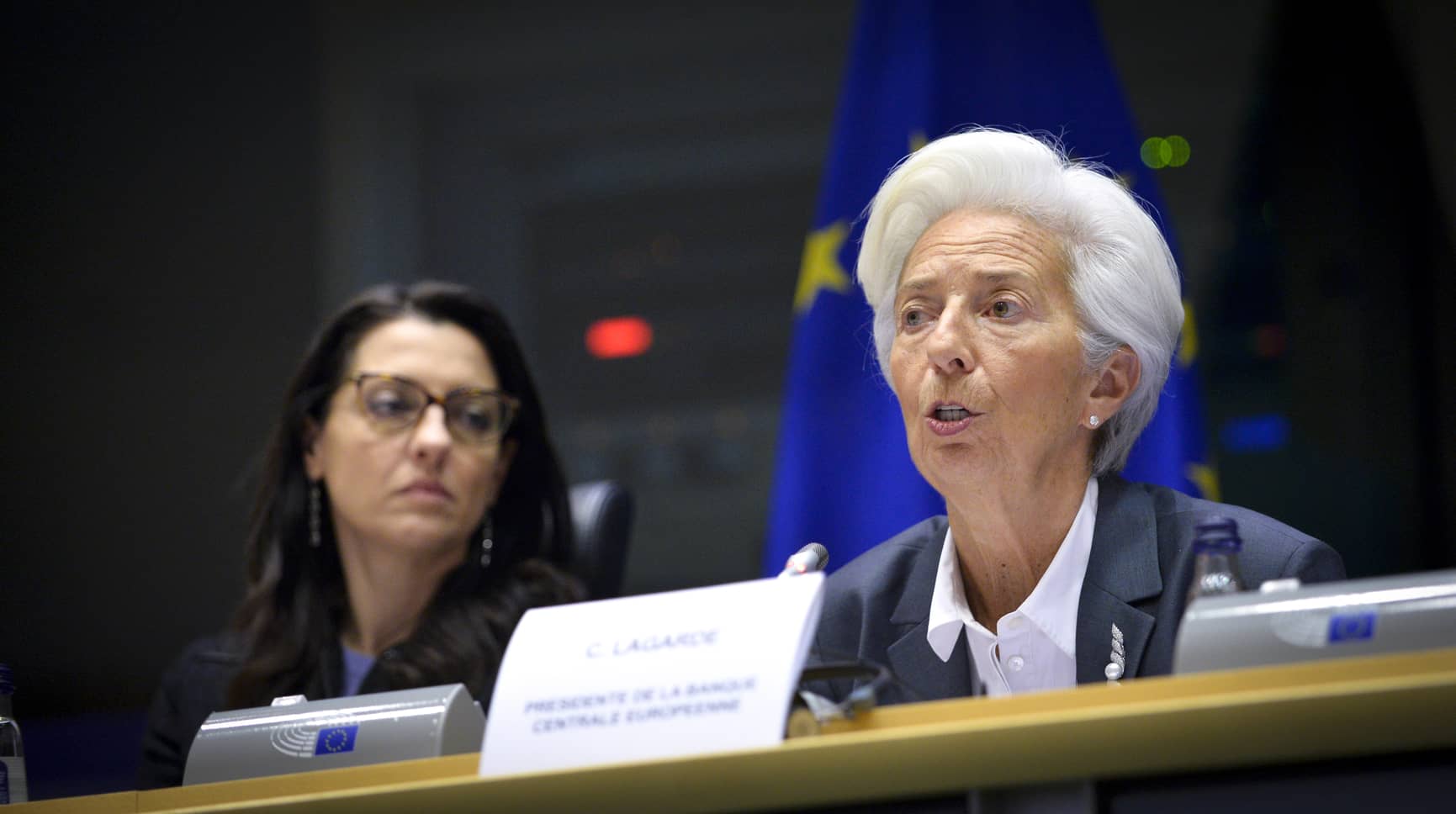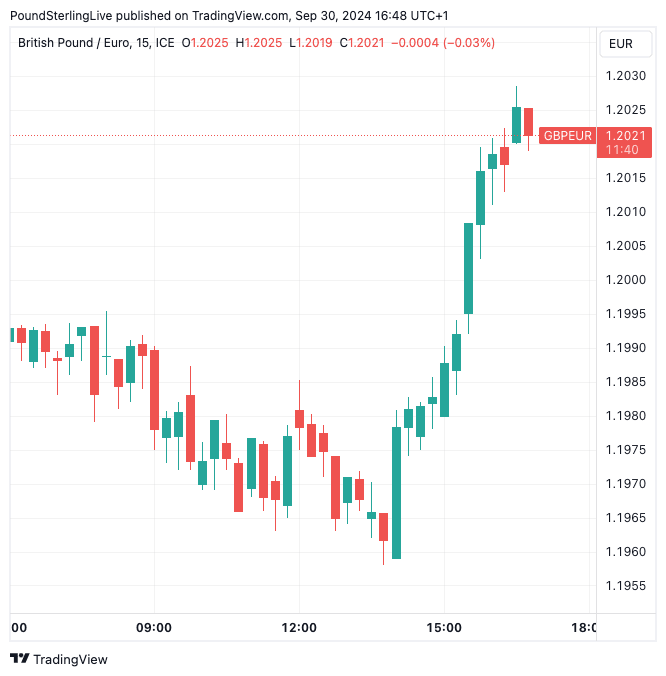
Above: Christine Lagarde. Image by Dominique HOMMEL. © European Union - Source: EP
Pound Sterling rose to its highest level of 2024 against the Euro after European Central Bank (ECB) President Christine Lagarde said signalled interest rates must come down faster.
Speaking to the European Parliament, Lagarde said core inflation in the Eurozone is on a downward trend, and there is reason to believe service prices are also abating.
"We're not going to wait" until everything is at 2% to reduce rates, she said while also acknowledging that the Eurozone labour market was showing signs of lower activity.
"Looking ahead, inflation might temporarily increase in the fourth quarter of this year as previous sharp falls in energy prices drop out of the annual rates, but the latest developments strengthen our confidence that inflation will return to target in a timely manner. We will take that into account in our next monetary policy meeting in October," she added.
"We change our ECB call and now expect back-to-back cuts of 25bp from now until the depo rate is back at 2% in June-25," says Ruben Segura-Cayuela, Europe Economist at Bank of America in Madrid, in the wake of Lagarde's comments.
Markets and economists thought the next cut to Eurozone interest rates would come in December as the ECB had previously said it wants to watch the incoming data.
But, the odds of a consecutive 25 basis point cut in October rose after last week's French and Spanish inflation releases dramatically undershot expectations.
Above: GBP/EUR at 15-minute intervals showing a spike following Lagarde's testimony to the EU Parliament.
Lagarde's comments effectively verify the rise in expectations for another move in October, sending Euro exchange rates lower across the board.
"President Christine Lagarde struck a more dovish tone," says Francesco Pesole, an analyst at ING Bank. "The notion that an inflation-concerned ECB would move more carefully than the Fed on easing is crumbling."
The Bank of England is meanwhile anticipated to cut interest rates on one further occassion in 2024, which creates a clear divergence in the pace of cuts on either side of the English Channel. This divergence means UK bond yields are significantly more attractive than those in the Eurozone, which creates investor demand for Sterling.
Lee Hardman, a currency analyst at MUFG, says the main driver of the euro-specific weakness has been building expectations that the ECB will speed up the pace of rate cuts in response to the faster than expected slowdown in inflation
MUFG says Lagarde's comments on inflation should give "a green light to market participants to more fully price in a back-to-back 25bps rate cut at the next policy meeting."
The Pound to Euro exchange rate is quoted at 1.2022 at the time of writing but went as high as 1.2029 after Lagarde's comments.
Risks to the Pound's outlook would involve the Bank of England speeding up the rate it cuts interest rates in 2025, which is a possibility given recent signs of a new economic slowdown.
"Over the past two years, no G10 economy has seen its data outperform expectations as much as the UK and together with high real rates the currency remains in a sweet spot," says George Saravelos, Strategist at Deutsche Bank.
Should UK data start to underperform, the outlook won't be quite so sweet for the Pound.

